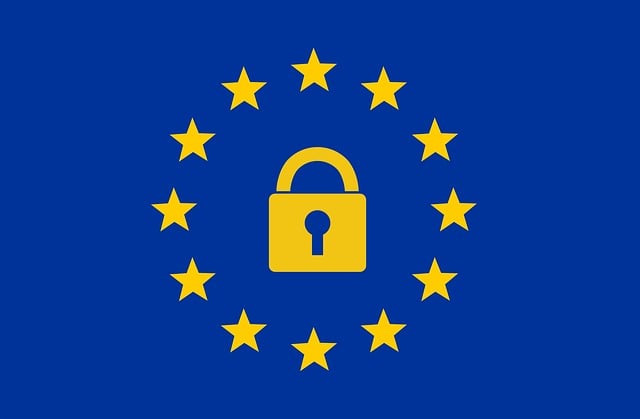Background checks, including real estate agent screening and license verifications, are vital for client safety and industry compliance in real estate. These measures uncover prior legal issues, ensure professional conduct, and maintain public trust by verifying agents' credentials, education, and history. Regular realtor background screening protects buyers and sellers from fraud and misconduct, enhancing the integrity of the industry as a whole.
In the dynamic realm of real estate, where trust and professionalism are paramount, background checks play a pivotal role in upholding standards. This article delves into the multifaceted aspects of background screenings for real estate agents, exploring how these processes safeguard clients, ensure industry compliance, and foster transparency. From agent screening to license verifications, we unravel the essence of comprehensive realtor background screening, emphasizing its importance in mitigating risks and enhancing trust in today’s market.
- The Role of Background Checks in Real Estate Agent Screening
- – Importance and necessity of background checks in the real estate industry.
- – Types of information typically verified during property agent background verification.
- Real Estate License Checks: Ensuring Professional Competence
- – How license checks maintain standards and protect clients.
- – Processes involved in verifying real estate licenses.
The Role of Background Checks in Real Estate Agent Screening

Background checks play a pivotal role in the meticulous process of real estate agent screening. These due diligence measures are not just a formality but an indispensable tool to ensure client safety in the real estate industry. By conducting thorough background verifications, including license checks and property agent history reviews, potential risks can be identified and mitigated. This process is crucial for maintaining the integrity and compliance within the real estate market.
Real estate license checks are a fundamental aspect of screening, as they verify the agent’s legitimacy and professional standing. Additionally, background screenings uncover previous legal issues or disciplinary actions, providing insights into an agent’s conduct and character. Such precautions contribute to fostering trust among clients, ensuring that their interests are protected throughout the property transaction process. This proactive approach not only safeguards clients but also enhances the overall reputation of the real estate industry as a whole.
– Importance and necessity of background checks in the real estate industry.

In the dynamic and often high-stakes world of real estate, ensuring client safety and maintaining industry compliance are paramount. Background checks for real estate agents serve as a critical component in upholding professional standards and mitigating risks. These verifications go beyond simply confirming a license and include scrutinizing an agent’s history, past employments, and any potential red flags that could affect their integrity or the security of transactions. By implementing robust real estate agent screening practices, including property agent background verification, agencies can protect both their clients and their own reputations.
The necessity of real estate license checks cannot be overstated, especially as deals can involve substantial financial investments and sensitive personal information. A thorough realtor background screening process helps weed out individuals with a history of fraud, violent crimes, or other unethical behavior, thereby fostering public trust in the industry. Moreover, it ensures that agents operating within the sector are reliable, trustworthy, and committed to ethical practices, ultimately contributing to a safer and more transparent real estate environment for all stakeholders.
– Types of information typically verified during property agent background verification.

Background checks play a pivotal role in ensuring client safety and maintaining standards within the real estate industry. When conducting property agent background verification, several key areas are scrutinized to verify an agent’s integrity and suitability for their role. These include checking their real estate license and its current status, verifying their educational qualifications and any relevant certifications, and delving into their professional history to assess their track record.
The process involves cross-referencing information from various sources, such as state licensing boards, academic institutions, and former employers. This comprehensive realtor background screening helps uncover potential red flags, including legal issues, malpractice claims, or unethical practices. By implementing rigorous background checks, the real estate industry can foster compliance, protect clients, and uphold its reputation, ensuring that agents adhere to high standards of conduct and professionalism.
Real Estate License Checks: Ensuring Professional Competence

Real Estate License Checks play a pivotal role in maintaining high standards within the industry by verifying the competence and credibility of agents. These checks serve as a robust screening mechanism for real estate agent background verification, ensuring that only qualified professionals enter the market. Through comprehensive license reviews, regulatory bodies can assess an agent’s understanding of legal requirements, ethical conduct, and compliance with industry best practices. This process is crucial for client safety in real estate, safeguarding buyers and sellers from potential risks associated with unqualified or dishonest agents.
By conducting regular real estate license checks, the industry ensures that property agents maintain up-to-date knowledge of market trends, regulatory changes, and legal updates. This continuous screening fosters a culture of accountability among realtors, promoting transparency and integrity in their practices. Ultimately, these checks contribute to the overall compliance within the real estate industry, ensuring a secure environment for all stakeholders involved.
– How license checks maintain standards and protect clients.

Background checks play a pivotal role in maintaining high standards within the real estate industry and safeguarding client interests. These thorough processes extend beyond simple license verification to uncover potential red flags or disqualifying factors that could compromise an agent’s integrity. By conducting comprehensive background screenings, clients gain assurance that their interactions are with trustworthy professionals committed to ethical practices.
Real estate license checks ensure compliance with regulatory requirements, deterring individuals with a history of fraudulent activities or professional misconduct from operating in the sector. This protective measure fosters client safety by minimizing the risk of dealing with unscrupulous agents who might exploit their position for personal gain. Consequently, a robust real estate agent screening process strengthens public trust in the industry and promotes fair and transparent dealings.
– Processes involved in verifying real estate licenses.

Background checks play a pivotal role in ensuring client safety and maintaining the integrity of the real estate industry. The process of verifying real estate licenses involves several crucial steps to screen potential agents. Initially, relevant authorities or regulatory bodies maintain comprehensive databases of licensed real estate professionals. These databases include detailed information such as license type, issuance date, and any disciplinary actions taken against the agent.
Real estate agencies or individual clients can then conduct property agent background verification by accessing these databases. This involves cross-referencing the agent’s provided details with the official records. License checks ensure that the realtor has not only obtained the necessary credentials but also complies with the industry’s standards and regulations. By implementing such screening measures, the real estate sector can safeguard clients from potential fraud or unethical practices, fostering a culture of trust and transparency.






